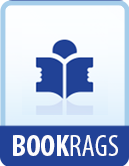The truth is, people will not be made much better by education until the plan of educating them is made better to begin with.
Froebel’s idea—the kindergarten idea—of the child and its powers, of humanity and its destiny, of the universe, of the whole problem of living, is somewhat different from that held by the vast majority of parents and teachers. It is imperfectly carried out, even in the kindergarten itself, where a conscious effort is made, and is infrequently attempted in the school or family.
His plan of education covers the entire period between the nursery and the university, and contains certain essential features which bear close relation to the gravest problems of the day. If they could be made an integral part of all our teaching in families, schools, and institutions, the burdens under which society is groaning to-day would fall more and more lightly on each succeeding generation. These essential features have often been enumerated. I am no fortunate herald of new truth. I may not even put the old wine in new bottles; but iteration is next to inspiration, and I shall give you the result of eleven years’ experience among the children and homes of the poorer classes. This experience has not been confined, to teaching. One does not live among these people day after day, pleading for a welcome for unwished-for babies, standing beside tiny graves, receiving pathetic confidences from wretched fathers and helpless mothers, without facing every problem of this workaday world; they cannot all be solved, even by the wisest of us; we can only seize the end of the skein nearest to our hand, and patiently endeavor to straighten the tangled threads.
The kindergarten starts out plainly with the assumption that the moral aim in education is the absolute one, and that all others are purely relative. It endeavors to be a life-school, where all the practices of complete living are made a matter of daily habit. It asserts boldly that doing right would not be such an enormously difficult matter if we practiced it a little,—say a tenth as much as we practice the piano,—and it intends to give children plenty of opportunity for practice in this direction. It says insistently and eternally, “Do noble things, not dream them all day long.” For development, action is the indispensable requisite. To develop moral feeling and the power and habit of moral doing we must exercise them, excite, encourage, and guide their action. To check, reprove, and punish wrong feeling and doing, however necessary it be for the safety and harmony, nay, for the very existence of any social state, does not develop right feeling and good doing. It does not develop anything, for it stops action, and without action there is no development. At best it stops wrong development, that is all.




